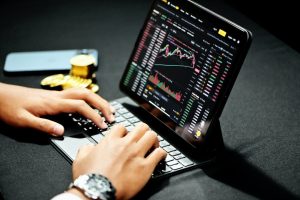CFD vs Forex: Tips for Choosing the Right Trading Platform for Your Needs
When it comes to trading in the financial markets, there are various options available to investors. Two of the most popular choices are Contract for Difference (CFD) and Forex trading. Both these options offer unique advantages and come with their own set of risks. In this article, we will discuss the differences between CFD and Forex trading and provide tips to help you choose the right trading platform for your needs.
CFD Trading:
CFD trading allows investors to speculate on the price movements of a wide range of financial instruments, such as stocks, indices, commodities, and currencies. When trading CFDs, investors do not own the underlying asset but rather enter into a contract with a broker to exchange the difference in price between the opening and closing positions.
Forex Trading:
Forex trading, on the other hand, focuses solely on the foreign exchange market. It involves buying and selling currency pairs, with the aim of profiting from fluctuations in exchange rates. Forex trading is decentralized, meaning that trades take place over-the-counter (OTC) through a global network of banks, brokers, and other financial institutions.
Leverage:
One of the key differences between CFD and Forex trading is the level of leverage available. CFDs typically offer higher leverage ratios compared to Forex trading. Leverage allows traders to control larger positions with a smaller amount of capital. While leverage can amplify profits, it can also increase losses. Therefore, it is crucial to understand the risks associated with leverage and use it responsibly.
Market Access and Liquidity:
CFD trading provides access to a wide range of financial markets, including stocks, commodities, and indices. This allows traders to diversify their portfolios and take advantage of various market opportunities. Forex trading, on the other hand, focuses solely on the foreign exchange market. It offers high liquidity, with trillions of dollars being traded daily. This high liquidity ensures that traders can enter and exit positions quickly, even during volatile market conditions.
Regulation and Security:
When choosing a trading platform, it is essential to consider the level of regulation and security provided by the broker. Both CFD and Forex trading involve a significant amount of risk, and it is crucial to trade with a regulated broker to ensure the safety of your funds. Regulated brokers are subject to strict financial regulations and must adhere to certain standards of client protection. Before opening an account, make sure to research the regulations governing the broker and check if they are licensed by a reputable regulatory authority.
Trading Costs:
Another factor to consider when choosing a trading platform is the cost involved. CFD trading typically involves additional fees, such as commissions and overnight financing charges. These costs can vary between brokers, so it is essential to compare them before making a decision. Forex trading, on the other hand, usually involves lower transaction costs, as brokers make money through the bid-ask spread, which is the difference between the buying and selling price.
Risk Management Tools:
Both CFD and Forex trading platforms offer a range of risk management tools to help traders protect their capital. These tools include stop-loss orders, take-profit orders, and guaranteed stop-loss orders. Stop-loss orders allow traders to set a specific level at which their position will be automatically closed to limit potential losses. Take-profit orders, on the other hand, allow traders to set a target profit level at which their position will be automatically closed. Guaranteed stop-loss orders provide an additional layer of protection by ensuring that positions are closed at the specified level, even if the market gaps.
Educational Resources:
When choosing a trading platform, it is essential to consider the educational resources and support provided by the broker. Forex and CFD trading can be complex, and it is crucial to have access to educational materials, webinars, and customer support to enhance your trading knowledge. Look for brokers that offer comprehensive educational resources to help you improve your trading skills and stay updated with market trends.
In conclusion, both CFD and Forex trading offer unique advantages and come with their own set of risks. When choosing a trading platform, it is important to consider factors such as leverage, market access, regulation, trading costs, risk management tools, and educational resources. By carefully evaluating these factors and understanding your own trading needs and goals, you can choose the right trading platform that suits your requirements and helps you achieve your financial objectives. Remember, trading in the financial markets involves risk, and it is crucial to trade responsibly and only risk capital you can afford to lose.






